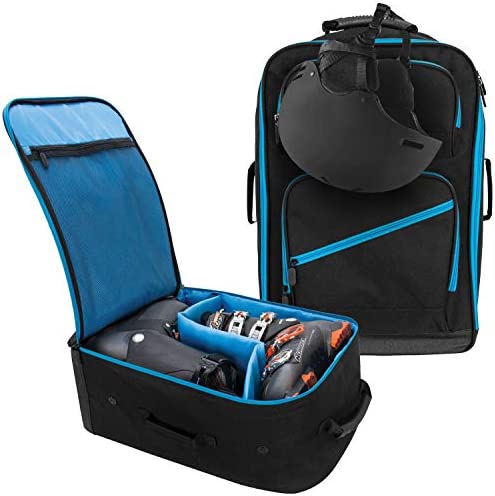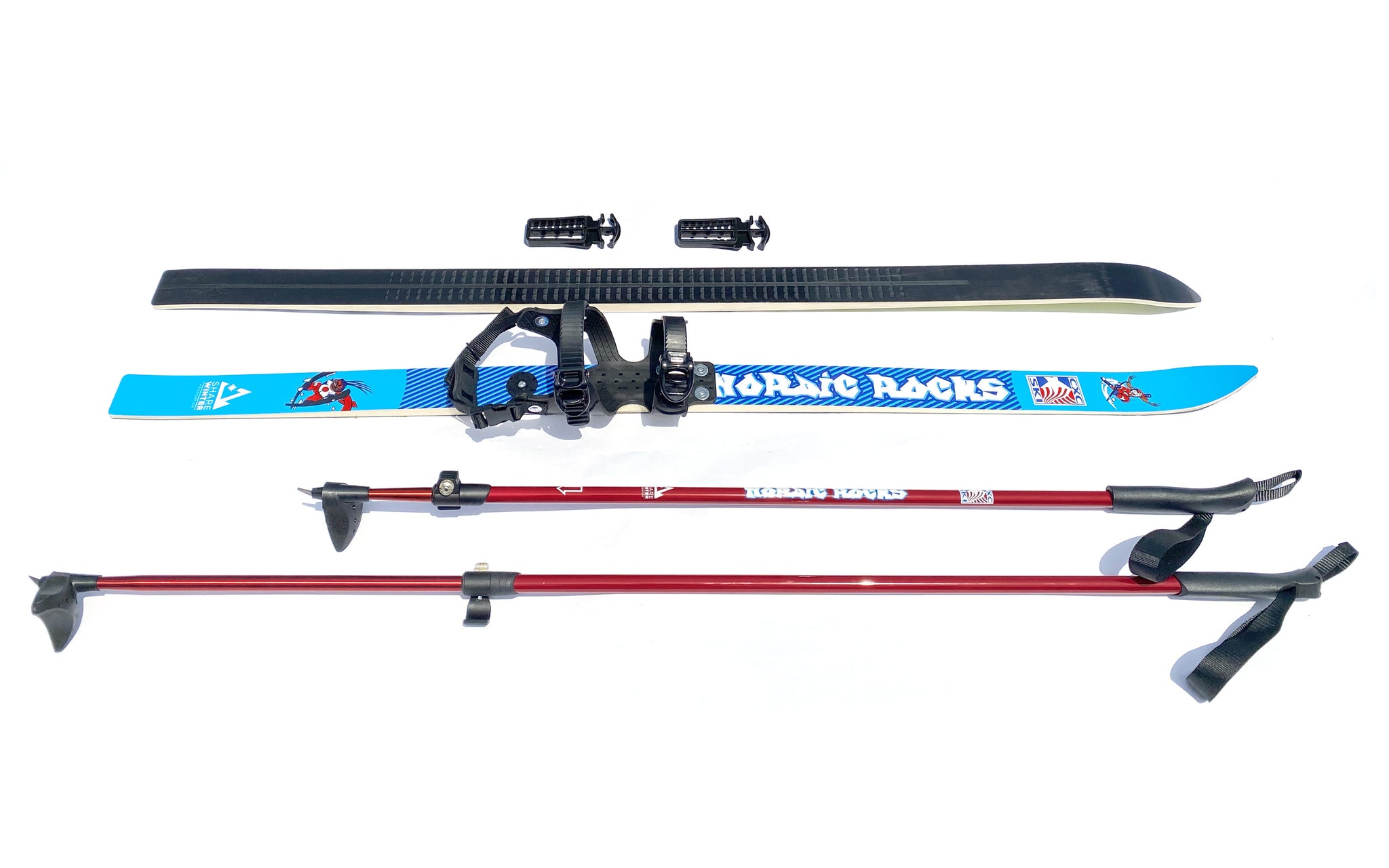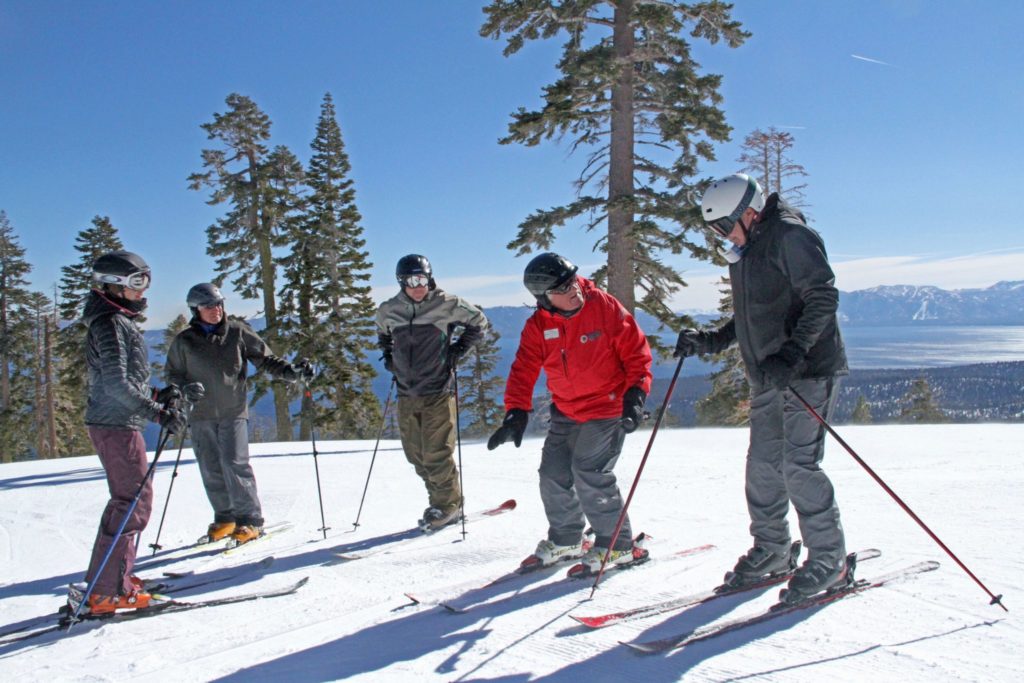
Alpine skiing is the sport that involves skiing down snowy hills on fixed-heel bindings. It is a well-known winter sport and is popular worldwide, especially in places with adequate tourist infrastructure.
Speed skiing
Skiers in alpine skiing are taught to ski down snowy mountain slopes as fast as they can. This sport is considered a time trial. It is one of the major events in the Winter Olympics. They are held every four years from 1936.
At the Olympics, five disciplines of alpine skiing are being contested: downhill; giant slalom; super-G; and combined. Each discipline features different events, and medals are awarded to the winners of each event.
Downhill
This is the most common and basic alpine ski discipline. Competitors must race down the course as fast and efficiently as possible. The fastest athletes win.

Slalom
Slalom can be described as the second fastest alpine ski discipline. You will need to make quick turns of direction as the gates are placed close together. Slalom competitions usually involve two runs on the same course, with eliminations based on the times of the first run.
Giant Slalom
Giant slalom, the most complex and technically demanding of all alpine skiing disciplines requires you to pass through a series gate, some closer than in Slalom. This requires a greater degree of skier control than in Slalom and is usually the most difficult discipline to win.
Super-G
Super-G, the third speed discipline in alpine ski racing, is where competitors race down slalom course while also having to navigate gates and make precise turns. The winner is the skier who makes the fastest time across all three courses.
Combined
The combined race, which sees competitors skiing down both giant slalom or slalom courses simultaneously, is the sixth and final of alpine ski disciplines. The gold medal goes to athlete with fastest overall time.
Grass skiing
Unlike cross-country and Nordic skiing, grass skiing is a type of ski that uses bindings attached to the heels of the skier's boots. This can be done on groomed trails, or in the backcountry.

Telemark
Telemark was invented in Norway and is a different form of skiing than Nordic or cross-country. It requires more control and reflexes than cross-country or Nordic skiing.
It is an FIS sanctioned discipline. Its name comes from the telemark area of Norway, where it was first invented in 1850 by Sondre Nordheim, a Norwegian skier. He invented new curved and heel-banded skis that make it easier to take sharp turns downhill.
Alpine skiing has been an Olympic sport for many years. The first men's and women's races took place at the 1936 Garmisch-Partenkirchen Games, with a combined downhill and slalom event. In 1952 and 1988, the first super-G and giant slalom races were added. The mixed team parallel slalom is the newest addition to Olympics.
FAQ
How do I travel light?
There is no right or wrong way to pack for a trip. Here are some tips that will help you make the right choice when packing for your next trip.
-
Only bring what is necessary.
-
Pack only what you'll actually wear.
-
Do not overpackage yourself with items.
-
Make sure you have room in your suitcase.
-
Always make sure you have everything you need.
-
Get free storage
-
Instead of purchasing bottled water, use reusable water bottles.
-
A backpack is better than a luggage.
-
Walk or cycle whenever possible instead of using public transport.
-
Select the right bag size
-
Avoid carrying heavy objects.
-
Prepare for anything.
-
You can't leave any trace.
What can I pack in my suitcase?
At least two pairs of shoes should be on your feet at all times. You need one pair for walking in the city; another pair to go on vacation.
Make sure you have enough clothes to cover both. If you are traveling by plane, you need to make sure you have an extra shirt, pants, underwear, and socks.
You may want to consider bringing some extra clothing with you if your plans are to stay for a longer period of time. This will ensure that you don't feel awkward while shopping for new outfits.
Comfortable shoes are essential for those who take the bus or train. For those who drive, it is a good idea to have spare tires.
You will also need to carry plenty of toiletries such shampoo, toothpaste (deodorant), moisturizer, and shampoo.
And last but not least, you'll need to take a flashlight, insect repellent, sunscreen, sunglasses, a hat, and a first aid kit.
Make sure you have all the items in one bag. That way, you'll save time and space.
Finally, remember to bring a small towel or washcloth. These will come in handy after a long day sightseeing.
Should I get travel insurance?
Travel insurance is vital if you're planning to travel. In fact, you should make sure that you get cover for all types of adventure sports.
If you're skiing, for example, it is important to have medical coverage. Also, you should consider getting insurance for theft, loss, or damage.
Cover for cancellation should be considered. This will allow you to cancel your holiday with no penalty.
You should also ask for coverage for emergency evacuation. This includes being taken off the mountain in case of an avalanche or other natural disaster.
What is the first thing to do after arriving at your travel destination?
You should always have an itinerary for when you arrive at a place. This helps you to know what to expect and where you should go next.
You need to plan ahead to ensure you don't miss anything important.
For example, if you're going to be visiting a city for more than one day, you should research which museums, parks, and landmarks you'd like to visit.
It might be worth looking into getting a map for the area or reading about the history of this region.
Statistics
- They're also likely to offer babysitting services, in case you'd like to have dinner one night after 7 p.m. (travelandleisure.com)
- That's an 18% jump from 2019, the previous record year. (travelandleisure.com)
- Alcoholic beverages with more than 24% but not more than 70% alcohol are limited in checked bags to 5 liters (1.3 gallons) per passenger and must be in unopened retail packaging. (tsa.gov)
- No Checked Bags: No Alcoholic beverages with more than 70% alcohol (over 140 proof), including grain alcohol and 151 proof rum. (tsa.gov)
- Alcoholic beverages with 24% alcohol or less are not subject to limitations in checked bags. (tsa.gov)
External Links
How To
How can you make it easier to travel?
It's always easier to travel when everything is planned in advance. You don’t have to worry about your next destination, how much money you will spend, what you’ll pack, etc. It is important to plan your trip before you leave home. This will ensure you don't waste time trying and figure things out on your journey.
Get Organized
There are many options for planning your travels. Some people prefer to keep track of every detail online, while others like to write notes in a notebook. For some, planning is about planning the entire trip. Some people just pack and go. No matter what method you prefer, planning is the best way to save time and energy on your trip.
Organizing Yourself
If you want to travel well, then you must also organize yourself. You should first make sure that you know exactly what you need to bring along with you. You need to make sure you have everything you could possibly need. Consider the weather conditions of your destination country before you pack clothes. Also, consider whether you want to rent a car or take public transportation. Check the facilities at your hotel before you leave. Do you have Wi-Fi? Is breakfast included in your stay Is laundry service available at the hotel? These are crucial details to include on your checklist. Once you've checked these items off of your list, you can relax and enjoy your vacation!